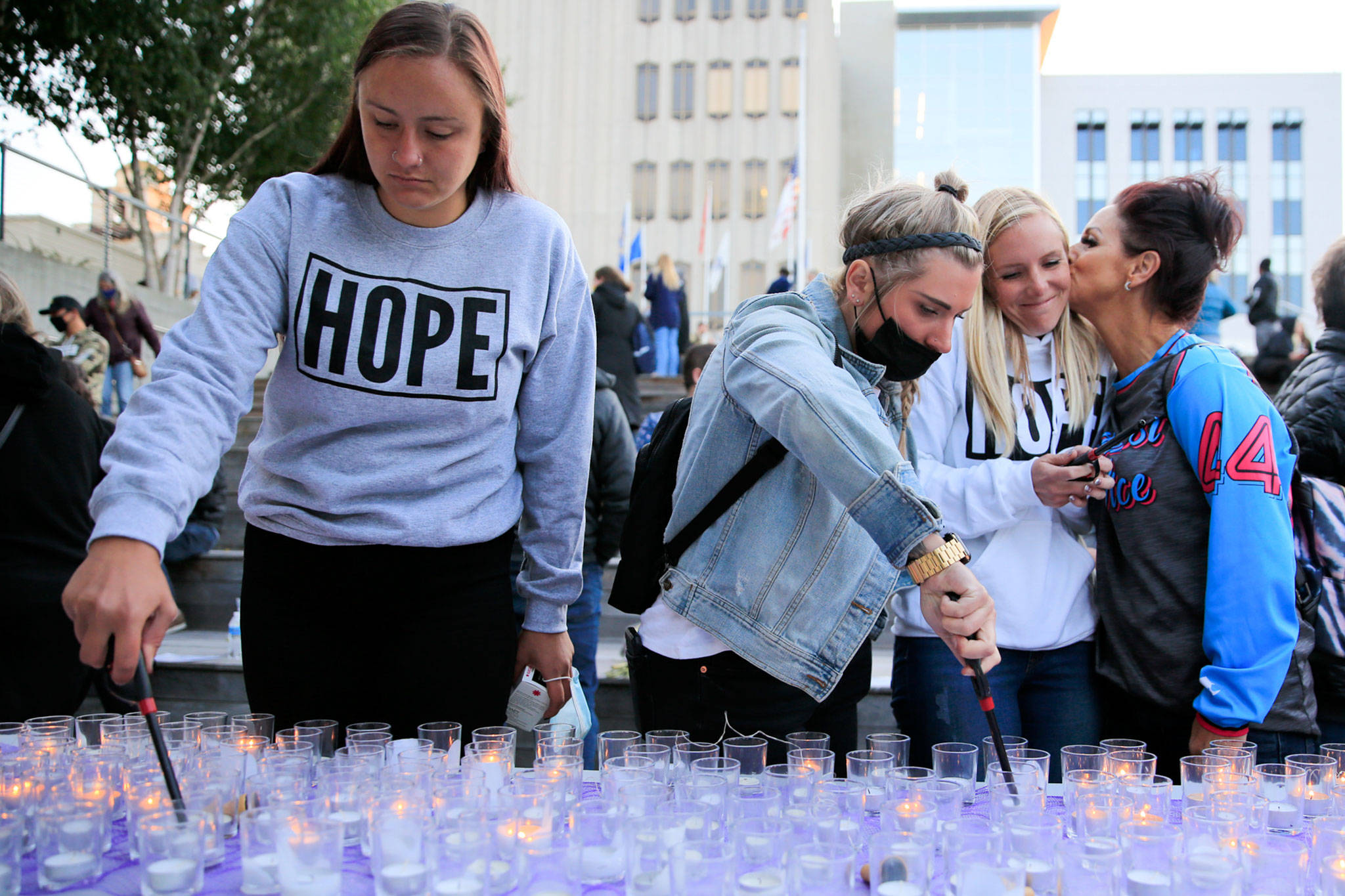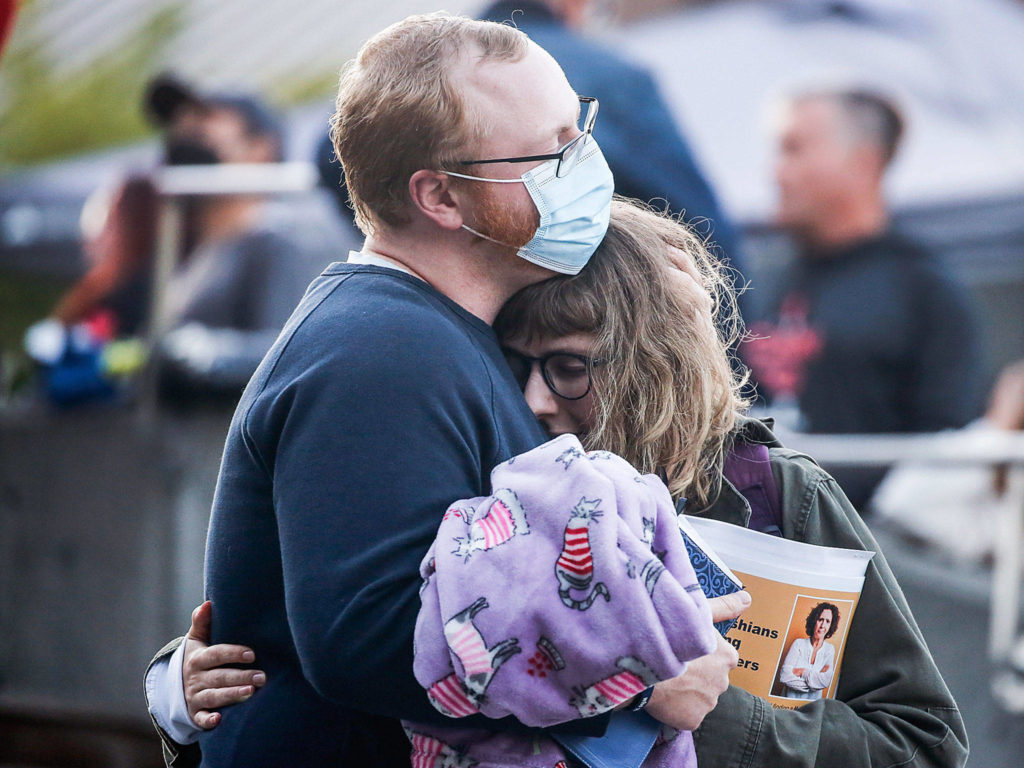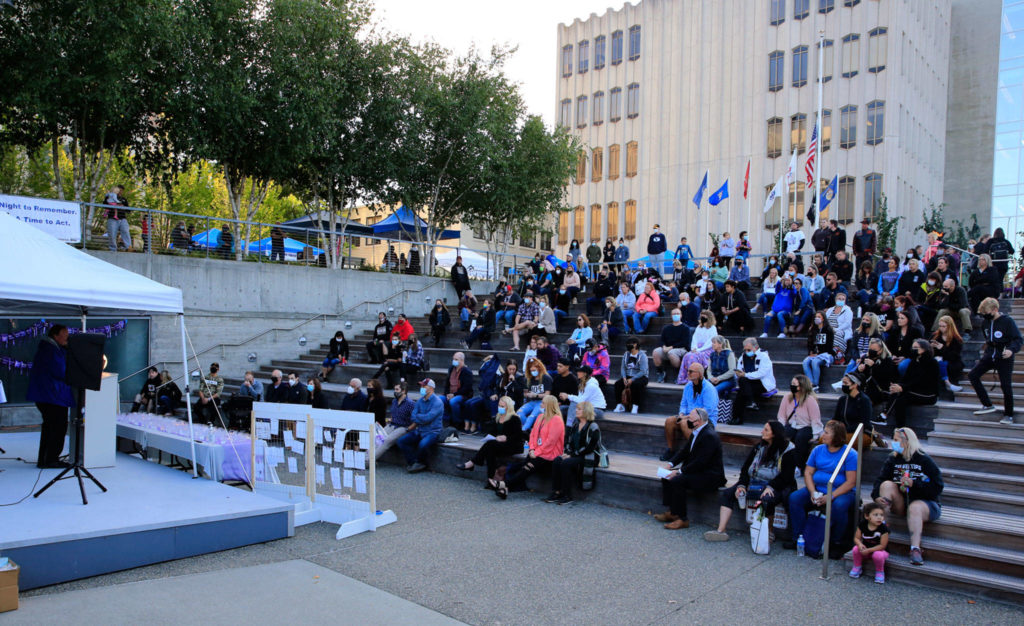EVERETT — As the sun set Tuesday evening, Snohomish County residents lined up to light candles for loved ones who have died from overdoses.
After looking at the crowd on the county government campus, Cathi Lee felt conflicted.
While it was great to have a bigger crowd than usual at the annual awareness event she helped found, Lee said, it was also foreboding.
“I wish that someday there will be no one here, that we won’t even have to talk about this,” said Lee, whose son, Corey, died from an overdose in 2015.
There were 230 drug-related deaths last year in the county, according to the Snohomish Health District. Just a few years ago, the total was half that. The youngest victim in 2020 was 17 and from Everett. Over half of those deaths were linked to synthetic opioids, like fentanyl.
And as of Monday, there had been 109 deaths this year.
“There isn’t really a family in Snohomish County or in the region that hasn’t been affected by addiction,” county Executive Dave Somers said.
In the first three months of this year, Washington had 418 overdose deaths, compared to 378 in the same period in 2020, according to the state Department of Health. Nearly half of those were fentanyl-related. Overdoses are increasing among all ages, races and socio-economic backgrounds, but increases were most pronounced among people of color, according to the state Department of Health.
Snohomish Health District Health Officer Dr. Chris Spitters said the increase in fentanyl overdoses should “scare us all.”
Becky Matter, who works at Evergreen Recovery Centers, has been her field for two decades. She said she’s never seen so many overdoses. With a cousin who has dealt with addiction since he was 12, Matter said, the issue is personal to her.
Naloxone, a nasal spray used to treat overdoses, was deployed 805 times by first responders last year, according to the health district. That was up from 682 instances in 2019.
So far this year, emergency departments at Providence Regional Medical Center Everett and Swedish Edmonds have had 289 overdose visits, according to the health district. In 2020, that number was almost 550.
Providence sees 1,300 to 1,400 patients each month who struggle with substance abuse disorder or mental illness, the hospital’s director of behavioral health, Laura Knapp, said Tuesday. The hospital’s recovery unit last year served more than 800 patients who were seeking acute withdrawal management. Providence’s behavioral health urgent care center, which opened in 2019, has served over 3,400.
“I share those numbers with you simply to send a message and that message being that if you or your loved one is struggling with substance use disorder or a mental health need that you’re simply not alone,” Knapp told the crowd Tuesday.
Last month, Providence opened a 24-bed behavioral health treatment facility. At Denney Juvenile Justice Center, a 32-bed space in Everett for adults dealing with addiction and mental health issues, started serving patients in August.
Camiya Bond attended the event to honor the father of her children, Shawn. His picture was on one of several boards with dozens of others flanking the candles.
Shawn Bond, who experienced homelessness and had a meth addiction, had been missing for almost three years when his remains were found on the Tulalip Reservation in 2018. He was 37.
Camiya Bond had an addiction to alcohol, but seeing several people close to her die from their dependency has kept her sober.
“I’ve lost way too many people to this disease,” she said.
Jake Goldstein-Street: 425-339-3439; jake.goldstein-street@heraldnet.com. Twitter: @GoldsteinStreet.
Talk to us
> Give us your news tips.
> Send us a letter to the editor.
> More Herald contact information.



























